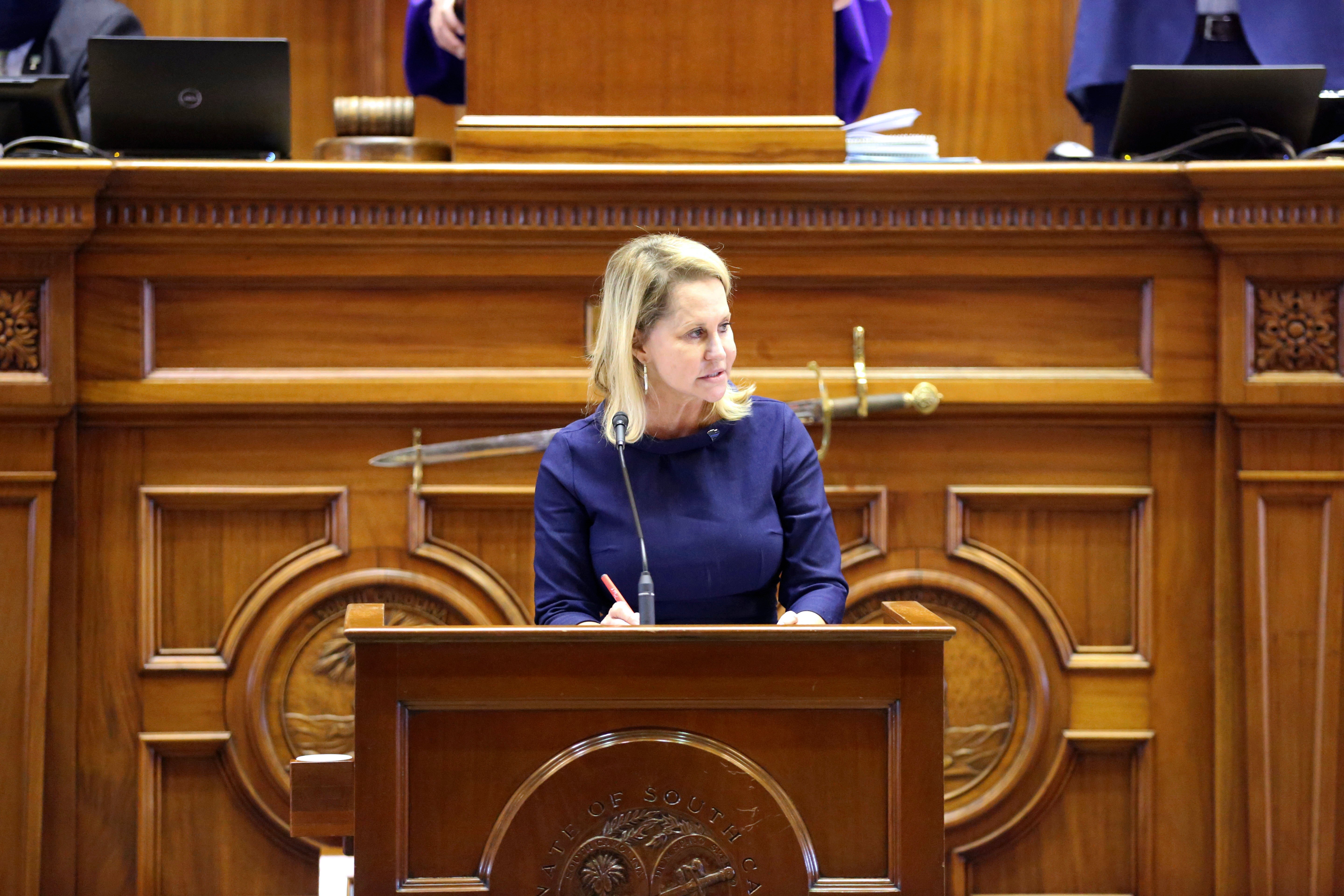South Carolina Senate passes bill outlawing most abortions
The South Carolina Senate has passed a bill that would outlaw almost all abortions in the state

Your support helps us to tell the story
From reproductive rights to climate change to Big Tech, The Independent is on the ground when the story is developing. Whether it's investigating the financials of Elon Musk's pro-Trump PAC or producing our latest documentary, 'The A Word', which shines a light on the American women fighting for reproductive rights, we know how important it is to parse out the facts from the messaging.
At such a critical moment in US history, we need reporters on the ground. Your donation allows us to keep sending journalists to speak to both sides of the story.
The Independent is trusted by Americans across the entire political spectrum. And unlike many other quality news outlets, we choose not to lock Americans out of our reporting and analysis with paywalls. We believe quality journalism should be available to everyone, paid for by those who can afford it.
Your support makes all the difference.The South Carolina Senate on Thursday passed a bill that would outlaw almost all abortions in the state, overcoming years of hurdles thanks to Republican winning new seats in last year’s elections.
The 30-13 vote is likely the final hurdle for the bill. It has passed the House easily in previous years and Gov. Henry McMaster has repeatedly said he will sign it as soon as he can.
The South Carolina Fetal Heartbeat and Protection from Abortion Act requires doctors to use an ultrasound to try to detect a fetal heartbeat if they think pregnant women are at least eight weeks along. If they find a heartbeat, and the pregnancy is not the result of rape or incest, they can’t perform the abortion unless the mother’s life is in danger.
Similar bills have passed in about a dozen other states but are tied up in courts. Both abortion rights advocates and opponents are waiting to see if the U.S. Supreme Court weighs in and rules any of the stricter bans are constitutional, especially since former President Donald Trump was able to name three justices.
In the Bible Belt, South Carolina led the fight for stricter rules on abortions during the 1980s and 1990s. The state’s current law bans abortions after 20 weeks and was once a conservative model.
But in recent years, states from Alabama to Ohio have passed restrictions that ban nearly all abortions because most women don’t know they are pregnant before about six weeks, when a fetal heartbeat can be detected.
The path for the bill cleared in South Carolina thanks in part to Trump. The divisive presidential race energized Republicans, who won three seats from Democrats in the 2020 elections and their new 30-16 advantage finally pushed the effort over a procedural hurdle that stopped the bill for years.
“Thank God for the people of this state,” said Republican Sen. Larry Grooms of Bonneau, who has been fighting to end abortion for 24 years.
The Senate labeled the bill No. 1 and made it the first major issue they took up in the 2021 session.
Democrats said that was shameful because South Carolina has many more pressing problems, including more than 6,000 people dead from COVID-19. It has never expanded Medicaid, raised the minimum wage and perpetually has an education system that ranks toward the bottom of the nation, said Democratic Sen. Margie Bright Matthews of Walterboro.
“What have we done for the living,” she said.
___
Follow Jeffrey Collins on Twitter at https://twitter.com/JSCollinsAP.